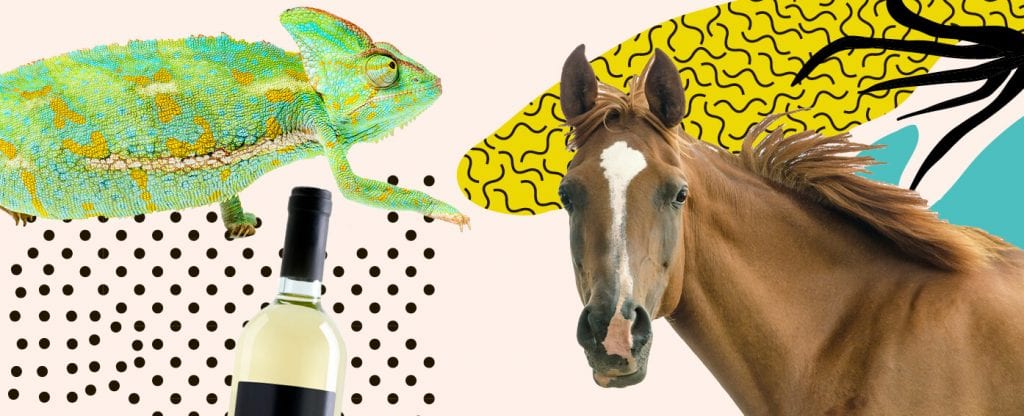
In the mad rush to lay claim to the obvious marital assets in divorce, other second and third string assets are often overlooked.
These are the items that maybe you just assumed you would have in the division because the thought never occurred to you that you would not have them going forward. Objects in a shed, storage in the garage, or safe deposit box that have sentimental value or those season tickets to your favorite sport. So, let’s take a moment to expand the vision for those categories of possessions that you might be tempted to overlook or not give any thought to how ownership would be apportioned.
A 2014 national survey by the American Academy of Matrimonial Lawyers found the vast majority of pet custody fights — 88 percent — had to do with dogs, while cats were the source of stress 5 percent of the time and horses 1 percent. The remaining 6 percent was listed as “other,” and included an iguana, python and a 130-pound turtle!
Some jurisdictions still apply the concept of pets as chattel following the 1995 decision in Bennett vs. Bennett, a Florida case in which the judge ruled that animals were personal property—much like golf clubs, the Kitchen Aid mixer or a coin collection— and courts, therefore, didn’t have the authority to grant custody or visitation schedules.
But recently Illinois (Section 503) Alaska (Sections 17,18,19), and, just recently, California have passed bills that change the conversation completely, and have empowered judges to consider the well-being of the animal instead of the desires of the human owners—and to assign a joint custody schedule that’s is in the animals best interest.
Alaska was the first to pass a pet “best interest” law in 2017, and Illinois enacted one earlier this year. The Illinois law has an exception for service animals. “If they were yours, they remain yours”. In California the law doesn’t just apply to dogs — it defines “pet” as “any animal that is community property and kept as a household pet.”
In working out pet custody agreements, consider each of your circumstances, costs connected with health and treatments, the age of the pet, and most important, try come to an agreement which honors how much your furry loved one(s) mean to you and the family.
I shall drink no wine before it’s time…Ok, it’s time! – Groucho Marx
Well, before you can follow this directive, there will need to be an investment in valuing an existing wine collection which has accumulated during the marriage.
This task is usually complicated by many factors including but not limited to emotional attachments to certain bottles/vintages, having the resources to maintain an allotment from the collection in the proper setting and temperature, concerns about whether your spouse will attempt to remove some portion of the collection etc.
One of the key tasks is to employ the right professional(s) in order to assist in assigning a value to the wine collection. Certified experts such as Enotrias are a good place to start. If locating this type of expert is challenging, contacting an auction house or a retailer of vintage wines might also prove helpful. As a supplement to getting a professional review, the database of Wine Spectator is useful to check out but should not be considered a substitute for an expert valuation.
Even after the value of a collection is ascertained, decisions still need to be made as to how the wines will be allocated in divorce.
There are many ways to approach this process but here are some ideas to get started:
Remember that even though the wine collection is being divided, you can always continue to build it up again… so throughout the process stay focused on due diligence and stay intentional about keeping a few of those bottles that you love.
Like wine, the valuation of horses in divorce can be a challenging procedure. There are many levels to the equation of value based on training, winnings, and earnings. It is vital that the appropriate appraisal expert is retained that has specific experience with the breed and use of the horse(s) to be evaluated. The professional that you choose should be evaluating training and level of performance and not just past history.
Selling, offsetting and joint ownership are common options for consideration of division during divorce.
Joint ownership requires a special level of due diligence in preparing the agreement as every detail needs to be clearly noted. These details include but are not limited to horse’s board, routine maintenance, insurance costs, breeding rights, showing rights, cash earnings from breed organizations. In addition, frozen semen is often very valuable and must be spelled out in a divorce agreement along with rights to any potential offspring.
DNA and cloning are big topics in the horse industry currently as there has been a recent court decision allowing cloned horses to be registered with the American Quarter Horse Association. Thus, the issue of division is further complicated by the fact that it is not just the rights to a horse but also the rights to the horse’s DNA, and the rights to any cloning of the horse must be discussed thoroughly.
The details will make all the difference in allocating horse ownership rights during divorce and both parties will be best served by hiring the most experienced professionals to assist in guiding these discussions.
Take the time to carefully consider your marital asset landscape to make sure that nothing is taken for granted and everything is fully vetted.
©2011-2025 Worthy, Inc. All rights reserved.
Worthy, Inc. operates from 25 West 45th St., 2nd Floor, New York, NY 10036